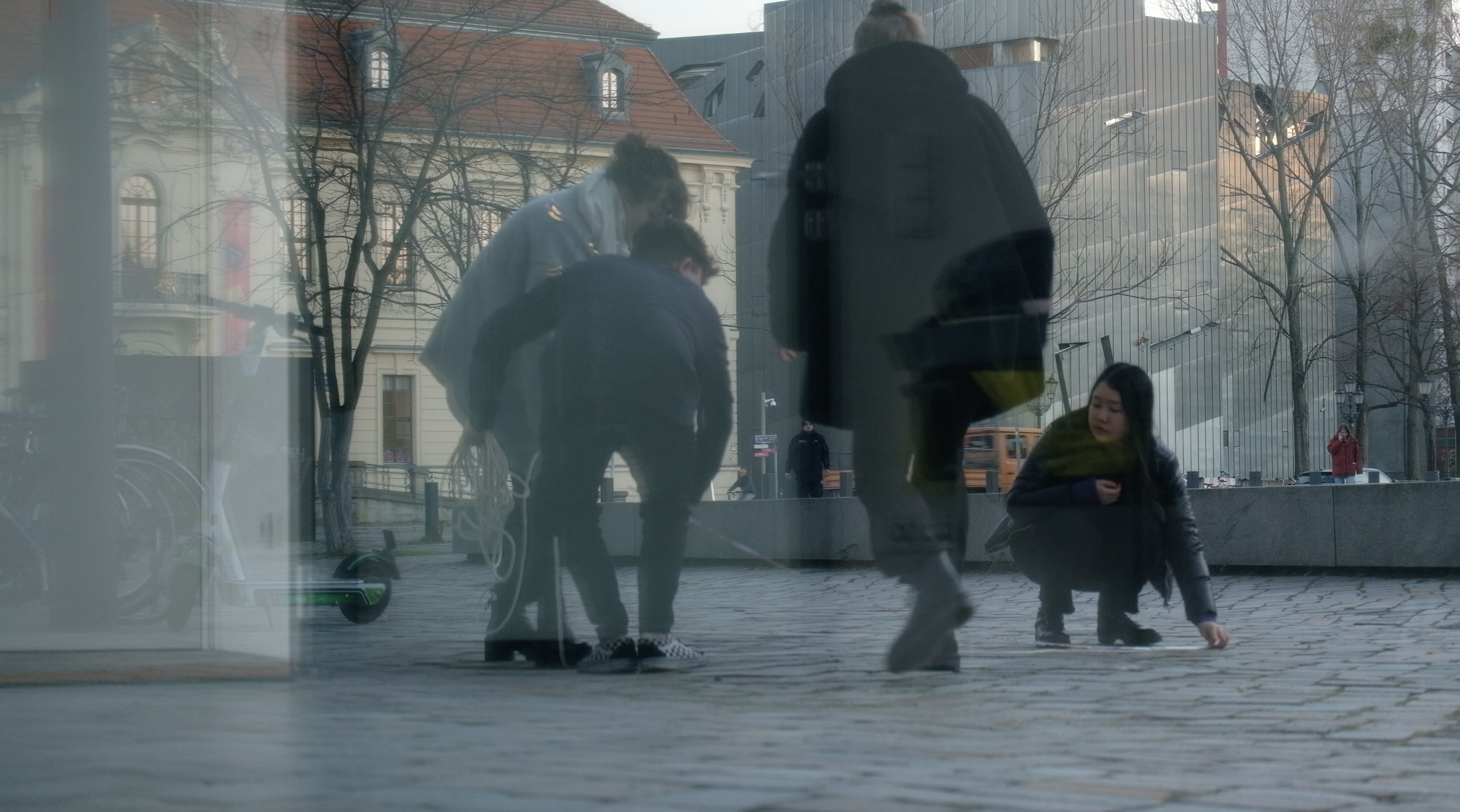FIELD SCHOOL: BERLIN – Questions for Learning Spaces

FIELD SCHOOL: BERLIN. Questions for Learning Spaces
Ausgehend von Besuchen institutioneller und selbstorganisierter Räume der Wissensproduktion, werden im Rahmen des Field-School-Programms in Form von Workshops, Vorträgen und eigenen künstlerisch-forschenden Experimenten zusammen mit eingeladenen Expert*innen, aktuelle Fragestellungen um die räumliche Organisation von Bildung und Wissen erforscht: Wie ist das Verhältnis von institutionellen Einrichtungen und informellen Räumen situierten Wissens? Mit welchen Herausforderungen, Ein- und Ausschlussmechanismen funktionieren sie, welche Gestaltung benötigen sie? Welche räumlichen Bedingungen ermöglichen und verunmöglichen Lernen und auf welchen gesellschaftlichen Aushandlungen basieren sie? Welche Rolle spielen Kunst und kulturelle Praktiken hierbei? Dabei verstehen wir Orte des Wissens und der Bildung im erweiterten Sinne sowohl als konkreten als auch abstrakten Ort, als Konzept, Gebäude, Ein- und Ausrichtungen sowie als Erzählung.
Eine Kollaboration des Labor für Kunst und Forschung, Universität zu Köln (Karina Nimmerfall und Maximiliane Baumgartner), Klasse Grund Schule Art Education, HFBK Hochschule für bildende Künste, Hamburg (Anja Steidinger) und Simon Fraser University, School for the Contemporary Arts, Vancouver (Sabine Bitter) im Rahmen von Cologne Summer Schools
Mit Vorträgen, Workshops und Outings von / mit Florian Zeyfang, Krabstadt Education Center (Ewa Einhorn, Jeuno Kim und Karolin Meunier), Markus Schega (Remise), Lena Ziese, Rosario Talevi (Floating University), Julia Friedrich (Jüdisches Museum Berlin) und Sabine Bitter.
Öffentliches Programm
Mo, 30.05.2022, 16:00 Uhr | Vortrag: Florian Zeyfang | OPEN FORM
Das theoretische Konzept der „offenen Form” des polnischen Architekten Oskar Hansen (1922–2005) wurde im Kontext der internationalen Debatten um die spätmoderne Architektur in den 1950er Jahren entwickelt. Die offene Form ging davon aus, dass ein künstlerischer Ausdruck erst dann vollständig ist, wenn er von seinen Nutzer*innen oder Betrachter*innen angeeignet wurde. Durch Hansens Lehre an der Kunstakademie und den Interpretationen der „offenen Form" durch seine Studierenden wurde das Konzept in den folgenden Jahrzehnten zu einem Schlüsselprinzip der Performance- und Filmkunst und führte zur Entwicklung prozessorientierter und interdisziplinärer künstlerischer Techniken. Hansens Konzept, und dessen „Übersetzung" durch die Studierenden, revolutionierte die traditionellen Mittel der künstlerischen Kommunikation.
Florian Zeyfang ist Künstler und Autor, er lebt in Berlin. Zusammen mit Lukasz Ronduda kuratierte er die Ausstellung 1,2,3… Avant-Gardes zu polnischem Experimentalfilm und gab mit Axel Wieder eine Publikation zu Oskar Hansens Open Form heraus.
Mi, 01.06.2022, 16:00 Uhr | Lecture: Ewa Einhorn, Jeuno Kim, Karolin Meunier |Krabstadt Education Center. Break-Centered Learning
Ewa Einhorn and Jeuno JE Kim introduce their transmedia project Krabstadt about a fictitious town where all the Nordic countries send their unwanted people and problems. Together with Karolin Meunier they present their most recent collaboration, the Krabstadt Education Center (KEC). By expanding animation to think about education systems, KEC is interested in places where we are stuck currently, and to craft formats and platforms for addressing pertinent issues within the scope of art education.
Krabstadt Education Center (KEC) was initiated in 2020. KEC has been set in motion by Ewa Einhorn & Jeuno JE Kim in collaboration with artist Karolin Meunier. KEC participated in Jakarta Biennale 2021: ESOK and guest-edited the upcoming issue of PARSE Journal for Artistic Research. Krabstadt is a transmedia project occupying positions in popular media. It consists of animated films, a digital game, online as well as onsite performances, sculptures in public space, printed matter, academic texts, and an art school.
Do, 02.06.2022, 19:00Uhr | Lecture: Sabine Bitter | Revisiting Educational Modernism
What can we learn from post-world-war-II universities, from their architectures and spaces of advanced knowledge which held the promise of progressive new ways of learning and teaching? Looking back at spatial concepts and “past future moments” of universities such as IIT Chicago, Goethe-University Frankfurt, University of Lethbridge, and Simon Fraser University, Vancouver our ongoing research asks: “What did those spaces want then, which image politics did they produce, and how to imagine a potential of those spaces today?”
Vancouver-based artist Sabine Bitter teaches visual art at the School for the Contemporary Arts at Simon Fraser University and is currently director of the SFU’s Berlin Field School. She collaborates with Vienna-based artist Helmut Weber on projects addressing the politics of how cities, architecture and urban territories are made into images since 1993. Mainly working in the media of photography and spatial installations their research-oriented practice engages with specific moments and logics of the global-urban change. In 2004, they formed the urban research collective Urban Subjects with Canadian writer Jeff Derksen. Selected exhibitions in 2021: Bitter & Weber: Performing Educational Modernism, SAAG, Lethbridge; Education Shock, HKW Berlin; 2020: Spaces of No Control, Austrian Cultural Forum, New York; 2019: Making Ruins, Republic Gallery, Vancouver; 2018: Camera Austria International, Museum of Modern Art, Salzburg; The Island is What the Sea Surrounds, Valetta, Malta.
Recent publications: Unsettling Educational Modernism, Bildungsmoderne entzaubern, adocs Hamburg, Edition Camera Austria, Graz, 2021.
www.lot.at